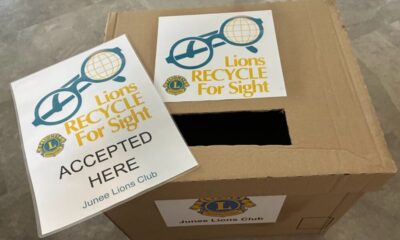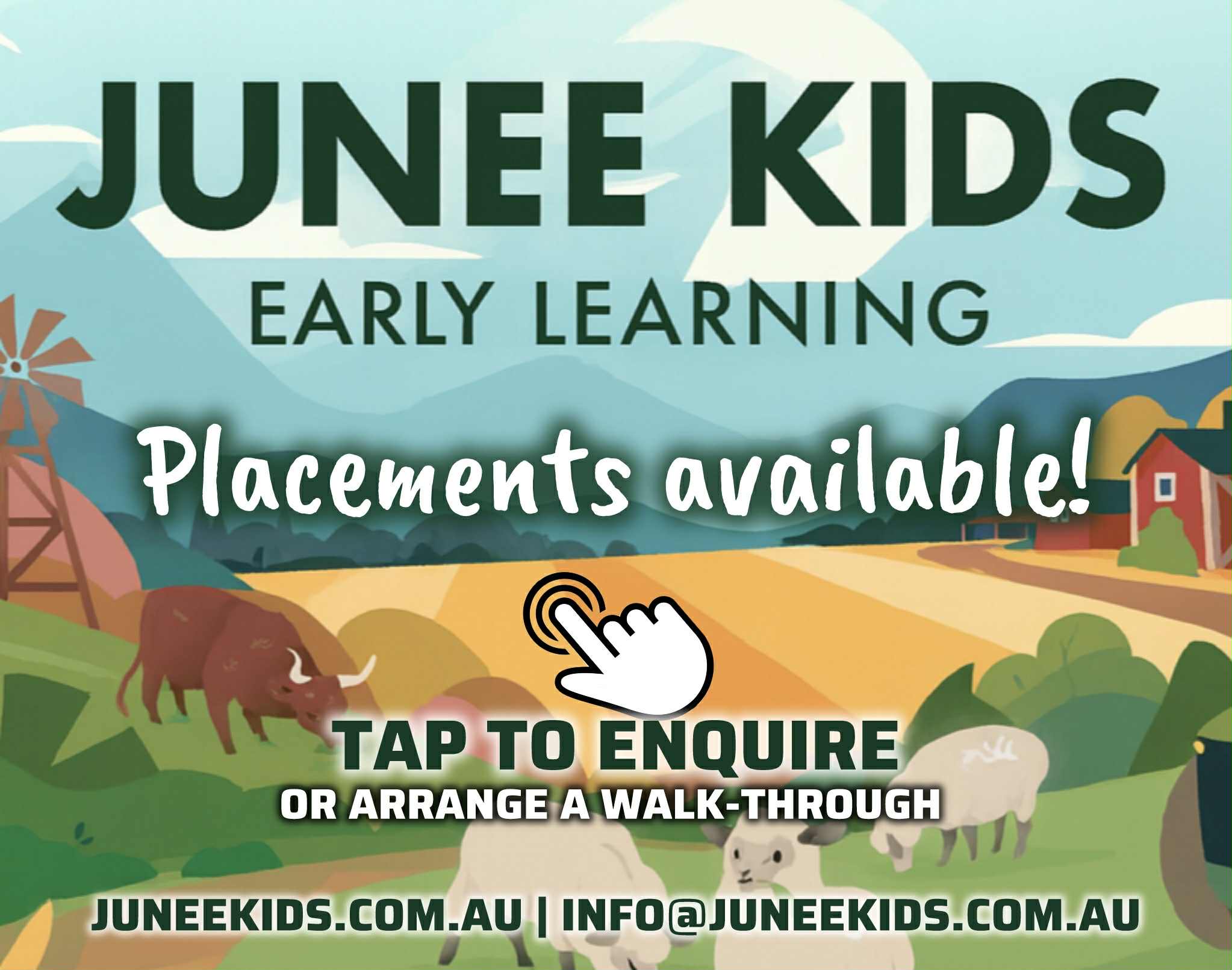Local
Junee Lions help identify vision issues in local schoolchildren
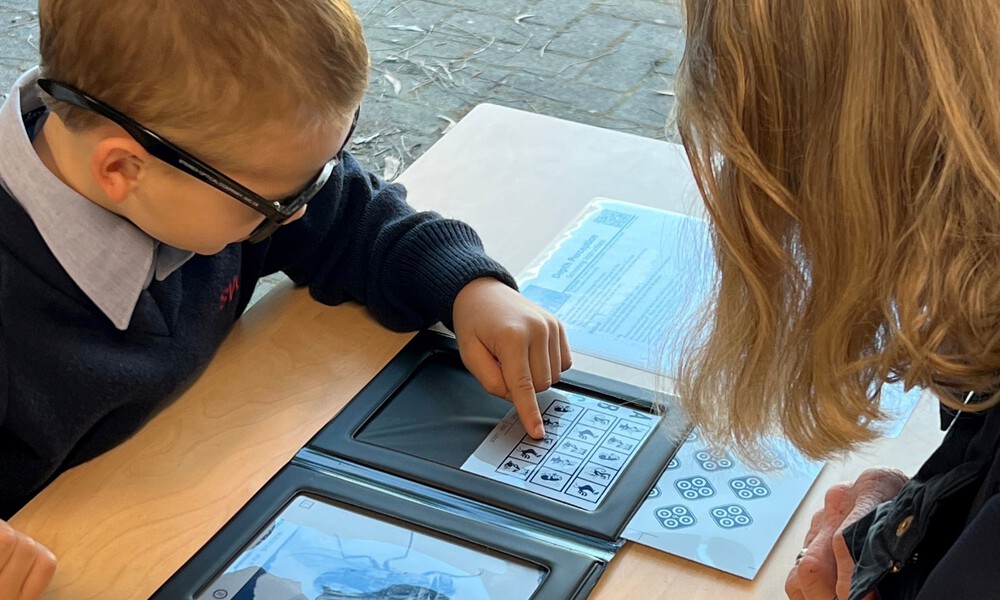
DOZENS of Junee primary school students have been referred for follow-up eye tests after a community-led screening program identified potential vision issues.
Over recent weeks, Junee Lions Club members have worked with four local schools — Junee Public, Junee North Public, St Joseph’s Primary and Illabo Public — to deliver the Lions Eye Health Program (LEHP) Children’s Vision Screening Program.
The initiative provides free vision screenings to children (from age 3 upwards) in schools, childcare centres, sporting clubs, and community groups — and is considered one of the most comprehensive programs in Australia.
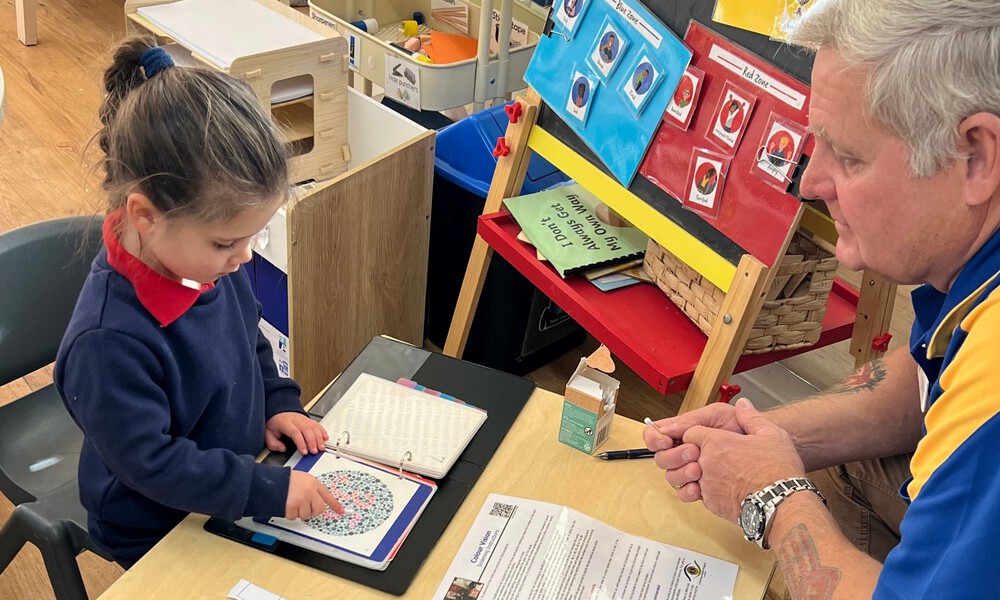
Photo: Supplied
Run in partnership with schools and with parental consent, the non-invasive screenings check for common eye conditions that can affect learning and development, including amblyopia (lazy eye), colour vision deficiency, muscle imbalances and reduced visual acuity.
Volunteers, fully trained and cleared under child welfare policies, conduct four easy-to-administer screening stations:
- Spot Vision Screener: A state-of-the-art portable camera captures a photo of the child’s eyes to screen for conditions such as myopia (near-sightedness), hyperopia (farsightedness), astigmatism, anisometropia (unequal refractive power), strabismus (eye misalignment), and anisocoria (unequal pupil size)
- Visual Acuity Test: Using a Lea Symbol Chart from a 3 m distance, children are asked to read symbols with both eyes together and then each separately to assess clarity and sharpness of vision
- Colour Vision Test: Children are shown coloured number plates and asked to identify the numbers, checking for normal colour perception
- Depth Perception (Stereo) Test: Wearing 3D glasses and using a “Stereo Fly” tool, children indicate whether they can see a fly pop out of the image – a test of binocular visual coordination and depth awareness
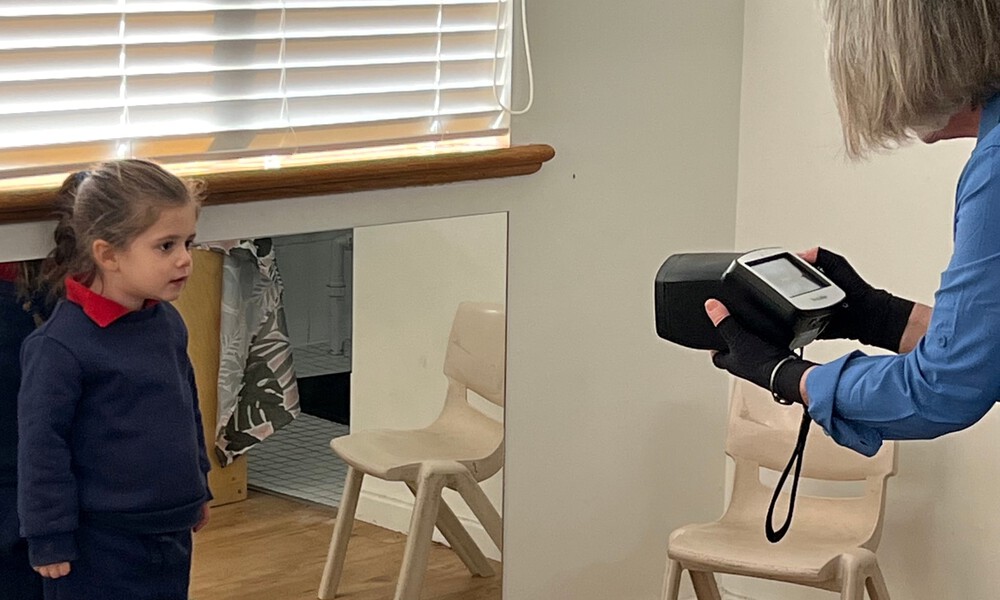
Photo: Supplied
While not a replacement for a full eye examination, the program provides valuable early detection — giving families the chance to address potential vision problems before they impact a child’s education and quality of life.
In total, 200 primary school students had their vision tested in Junee, with screening results indicating that 70 of them should seek further assessment from an optometrist or other qualified eye health professional.
Over 45,300 children have been screened by the program since its inception, with more than 9,200 referred to an optometrist.
For more information about the Lions Eye Health Program, visit lehp.org.au.


